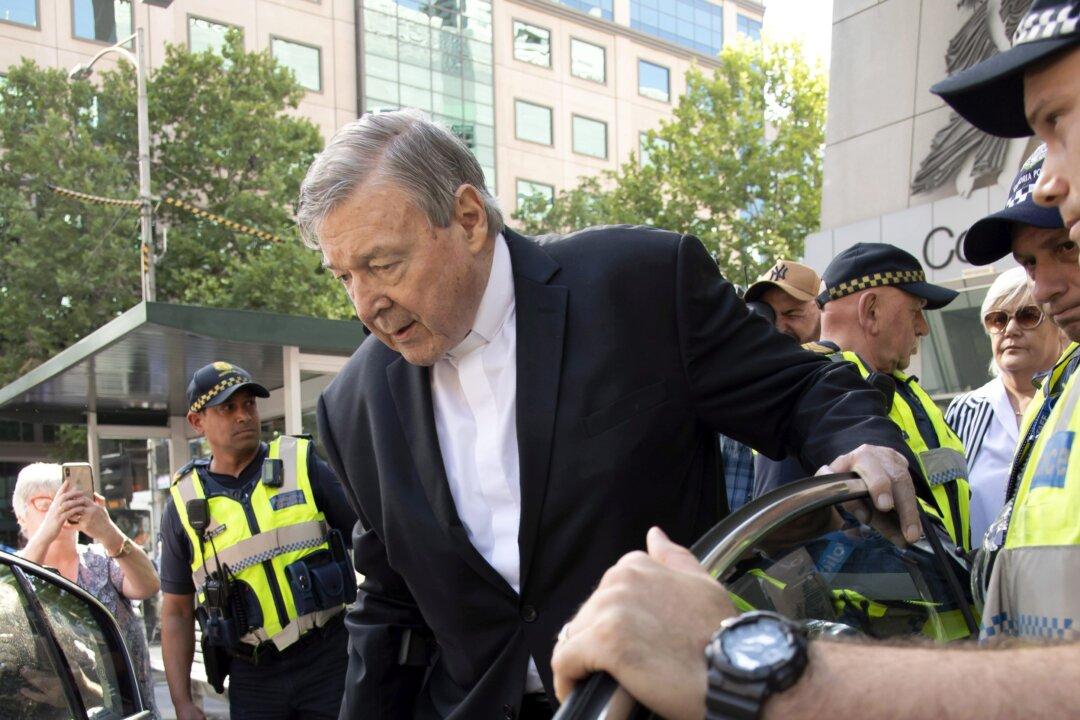MELBOURNE, Australia—Prosecutors argued in an Australian court on Thursday that child sex convictions against Roman Catholic Cardinal George Pell should not be overturned and said his accuser had been a compelling witness.
Cardinal George Pell, 77, is the most senior Catholic to be convicted of children sex abuse and is appealing those guilty verdicts in the Victoria state Court of Appeal. He attended the hearing for a second day, wearing a cleric’s collar and occasionally taking notes.





